Trong tác phẩm để đời của mình (An Inquiry into the Nature and Causes of the Wealth of Nations/ Tìm hiểu về bản chất và nguyên nhân của sự giàu có của các quốc gia), Smith đã phân tích một cách có hệ thống để chỉ ra những yếu tố đưa đến sự thịnh vượng quốc gia. Vào thời ông, tư tưởng của Adam Smith như một ngọn đuốc sáng soi rõ những bất cập của nền tảng kinh tế - chính trị lúc bấy giờ. Tác phẩm của ông không những được đón nhận nồng nhiệt ở châu Âu mà còn được đọc kỹ lưỡng bởi những nhà lập quốc của Mỹ.
Nhưng tư tưởng của Adam Smith không chỉ nằm trong phạm vi kinh tế chính trị học, ông còn là một triết gia về đạo đức. Cuốn sách đầu tiên mà ông cho xuất bản vào năm 1759 và tiếp tục chỉnh sửa để tái bản lần thứ sáu vài tháng trước khi ông qua đời là cuốn luận về đạo đức (The Theory of Moral Sentiments/Lý thuyết về tình cảm đạo đức). Do đó, để hiểu rõ tư tưởng bao trùm của Adam Smith thì không thể bỏ qua học thuyết về đạo đức hòa quyện trong học thuyết kinh tế chính trị của ông.
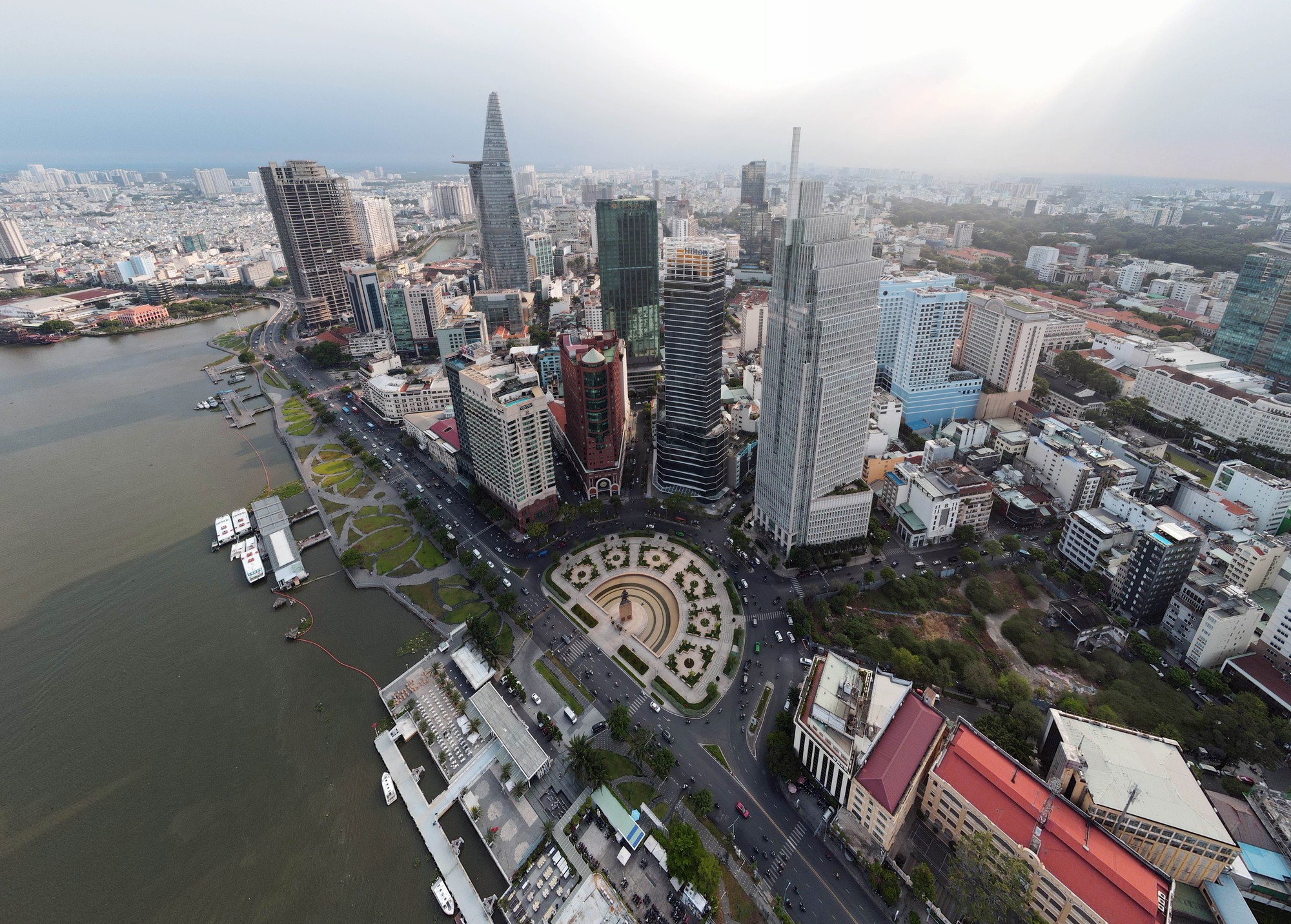
Adam Smith đã chỉ ra những yếu tố đưa đến sự thịnh vượng quốc gia
Smith sống trong bối cảnh của Cuộc cách mạng công nghiệp lần thứ nhất đang bắt đầu diễn ra và Phong trào khai sáng ở châu Âu (đặt trọng tâm xây dựng kiến thức dựa trên thực nghiệm và lý trí) đang ở độ cao trào. Người thầy quan trọng nhất (Francis Hutcheson) và người bạn trí thức thân thiết nhất (David Hume) của Smith đều là những triết gia khai sáng có tầm ảnh hưởng rộng. Trong bối cảnh như vậy, tư tưởng tổng thể của Smith được xây dựng dựa vào sự quan sát thực nghiệm của ông về những gì xảy ra trong những quan hệ (kinh tế/chính trị/đạo đức) giữa người và người trong xã hội.
Smith mong muốn có một xã hội tốt đẹp; và ông tìm hiểu để chỉ ra những yếu tố đưa đến mục đích đó. Smith viết: "Không có xã hội nào có thể thịnh vượng và hạnh phúc khi đa phần các thành viên đều nghèo khó và đau khổ."[1] Ông quan tâm đến việc làm thế nào để nền kinh tế phát triển để giảm nghèo cho đại bộ phận người dân; nhưng ông cũng cho rằng tiền không thể mua hạnh phúc, vì con người còn có những nhu cầu về tinh thần khi sống trong một xã hội. [2]
Tư tưởng của Adam Smith tồn tại với thời gian vì ông không rơi vào cực đoan và đóng khung nó trong mọi hoàn cảnh. Với ông, đời sống kinh tế, chính trị, và xã hội là những yếu tố không thể tách rời nhau. Do đó, những học thuyết của ông về kinh tế thị trường, vai trò của nhà nước, và quan hệ xã hội vẫn còn nguyên giá trị cho thế giới hôm nay.
Gia tăng năng suất là nền tảng của thịnh vượng quốc gia
Viết trong lúc nước Anh đang chuyển mình trong cách mạng công nghiệp, Smith có cơ hội quan sát thực nghiệm để chỉ ra những yếu tố nền tảng đưa đến sự thịnh vượng quốc gia. Đối với Smith, sự giàu có của quốc gia không phải là sự gia tăng của cải của giới cầm quyền mà phải là cuộc sống vật chất tốt hơn của đại đa số người dân. Qua đây thì sự tăng trưởng kinh tế (sự gia tăng sản lượng hàng hóa và dịch vụ) là yếu tố then chốt để cải thiện cuộc sống.
Smith phân tích và chỉ rõ rằng tăng trưởng kinh tế phụ thuộc vào khả năng tăng năng suất của nền kinh tế. Và năng suất phụ thuộc vào phân công lao động. Phân công lao động càng cao thì sự chuyên môn hóa càng càng cao, đưa đến gia tăng sáng tạo và công nghệ mới, đẩy mạnh gia tăng năng suất.
Nhưng mức độ của sự phân công lao động lại dựa vào độ lớn của thị trường. Smith viết: "Dựa vào sức mạnh của việc trao đổi mà dẫn đến việc chia sẻ công việc, nên phạm vi của sự chia sẻ này luôn bị hạn chế bởi phạm vi của sức mạnh đó, hoặc nói cách khác, bởi phạm vi của thị trường. Khi thị trường rất nhỏ, không ai có động cơ để dành toàn bộ thời gian của mình cho một công việc, vì thiếu khả năng trao đổi phần dư sản phẩm lao động của họ, phần mà nằm ngoài nhu cầu tiêu thụ của họ, cho các phần của sản phẩm lao động của người khác mà họ cần."[3]
Như vậy, chìa khóa của độ lớn của thị trường là "sức mạnh của việc trao đổi", có nghĩa là khi người dân càng được tự do mua bán thì thị trường càng lớn. Ở phạm vi toàn cầu, khi thương mại càng được tự do thì thị trường càng lớn, càng thúc đẩy phân chia lao động, chuyên môn hóa, và tăng năng suất. Nói tóm lại, tự do kinh tế là nền tảng cho việc cải thiện đời sống vật chất. Và thực tế đã chứng minh cho nhận định của Smith. Ngày nay, mối liên hệ giữa thương mại và năng suất là rõ rệt. Gia tăng thương mại là một yếu tố quan trọng trong việc cải thiện năng suất.[4] Với sự gia tăng toàn cầu hóa trong những thập niên qua, hàng tỷ người trên thế giới đã được thoát khỏi tình trạng nghèo cùng cực. Tổ chức Thương mại Thế giới (WTO) Ngân hàng Thế giới (WB) đã chỉ ra rằng: "Thương mại đã đóng góp quan trọng vào việc giảm nghèo [từ trước] đến nay, và sự hòa nhập hơn nữa của các nước đang phát triển vào thị trường quốc tế sẽ là điều cần thiết để chấm dứt nghèo đói và không để lại ai phía sau."[5]
Mô hình phát triển
Smith coi tự do kinh tế như một "hệ thống tự do tự nhiên" phù hợp với bản chất của con người, có khả năng khơi dậy tiềm năng sáng tạo của cá nhân trong một xã hội được điều tiết bởi một nhà nước có giới hạn để đảm bảo một sân chơi công bằng.
Smith cho rằng "không cần nhiều thứ để đưa một quốc gia từ trạng thái thấp kém và thô sơ lên đến đỉnh cao của giàu có ngoại trừ hòa bình, thuế má dễ chịu và hệ thống quản lý công lý có thể chấp nhận được. Mọi thứ khác sẽ xảy ra theo quy luật tự nhiên của các sự vật".
Đối với Smith, quy luật tự nhiên được hình từ sự tương tác giữa những cá nhân trong một thị trường tự do, đưa đến một kết quả tốt chung cho toàn xã hội. Sự can thiệp của nhà nước vào thị trường tự do sẽ làm đảo lộn quy luật này vì chính sách nhà nước thường phạm sai lầm do những nguyên nhân chủ quan và khách quan khác nhau.
Smith viết: "Người tin vào hệ thống […] thường tỏ ra rất thông minh trong ánh nhìn của chính họ; và họ thường mê mải bởi vẻ đẹp tưởng tượng của kế hoạch lý tưởng của nhà nước đến mức họ không thể chấp nhận bất kỳ sự lệch lạc nhỏ nào từ bất kỳ phần nào của nó... Họ dường như tưởng tượng rằng họ có thể sắp xếp các thành viên khác nhau của một xã hội lớn như việc tay sắp xếp các quân cờ trên bàn cờ vua. Họ không xem xét rằng... trên bàn cờ vua lớn của xã hội nhân loại, mỗi quân cờ có một nguyên tắc vận động riêng biệt, hoàn toàn khác với cái mà nhà nước có thể chọn để áp đặt lên nó."[6] Nhận xét này không phải đến từ một người không có kinh nghiệm gì về nhà nước. Thật là thú vị là chính Smith cũng là một người trong hệ thống nhà nước trong hơn một thập kỷ (quan chức hải quan của Scottland) cho đến khi ông qua đời vào năm 1790.[7]
Chi tiết hơn, nhận xét trên của Smith dựa trên ba điểm liên quan mật thiết với nhau. Thứ nhất, khuynh hướng tự nhiên của mỗi cá nhân là luôn tìm cách tốt nhất để cải thiện cuộc sống với nguồn lực có hạn của mình. Thứ hai, chỉ có cá nhân mỗi người (chứ không phải nhà nước) mới biết chính mình tốt nhất (về khả năng và nguồn lực) để có thể có những chọn lựa (quyết định) tốt nhất. Thứ ba, khi các cá nhân được tự do theo đuổi lợi ích của mình trong một xã hội mà công lý được bảo vệ thì sẽ đưa đến kết quả tốt đẹp chung cho toàn xã hội, bởi vì để thành công thì các cá nhân phải gắng hết sức mình và tự nguyện hợp tác với nhau.[8] Đây là sự vận hành của "bàn tay vô hình" trong cách gọi của Smith.
Nhưng Smith cũng đã thận trọng để chỉ vai trò của nhà nước trong việc hỗ trợ thị trường, xây dựng một xã hội tốt đẹp. Duy trì hòa bình và an ninh là chức năng của nhà nước. Cung cấp những dịch vụ công để phục vụ cho phát triển kinh tế (như cơ sở hạ tầng giao thông) cũng là một vai trò quan trọng của nhà nước. Khi nhà nước thực hiện nhiệm vụ của mình một cách có hiệu quả thì tiền thuế được dùng đúng cách và sẽ không "ập lên đầu" của người dân. Smith ủng hộ một hệ thống thuế đơn giản, minh bạch, và tương ứng với thu nhập của mỗi người dân.
Và một thị trường tự do hoạt động hiệu quả, đưa đến kết quả tốt chung cho toàn xã hội thì phải được dựa trên nền tảng công lý được nhà nước bảo vệ. Đối với Smith, công lý được bảo vệ khi nhà nước có luật lệ rõ ràng để bảo vệ (1) tính mạng (2) tài sản, và (3) giao kèo của người dân. Smith thận trọng giới hạn định nghĩa về công lý để nhà nước không nhân danh công lý mà can thiệp quá trớn vào thị trường và xã hội nói chung.[9]
Smith chỉ rằng luôn có khả năng giới doanh nghiệp có thế lực cấu kết với quan chức nhà nước (chủ nghĩa tư bản bè phái) để trục lợi thông qua những chính sách ban phát (trợ cấp) hay giúp hạn chế cạnh tranh. Ông khuyên rằng bất kỳ đề xuất nào từ giới này cũng cần phải cẩn thận xem xét và hồ nghi về mục đích của họ. Trục lợi chính sách không những bất công (vì đem lại lợi ích cho nhóm nhỏ trong khi công chúng phải trả giá) mà nó làm cản trở tăng trưởng kinh tế (vì nó bóp méo sự phân bổ các nguồn lực).[10]
Trong "hệ thống tự do tự nhiên", cá nhân không những được điều tiết bởi sự cạnh tranh và thực thi công lý mà còn hành vi đạo đức không thể thiếu trong một xã hội thịnh vượng và hạnh phúc. Smith viết: "Hạnh phúc nằm trong sự yên bình và sự thích thú. Không có sự yên bình thì không thể có sự thích thú; và nơi có sự yên bình hoàn hảo thì hiếm có điều gì không thể làm cho người ta vui vẻ." Smith chỉ ra rằng muốn có sự yên bình thì cần phải sống với ba giá trị đạo đức nền tảng là công lý, sự thận trọng, và biết làm lợi cho người khác. Được như vậy thì mỗi cá nhân mới thật sự hạnh phúc và xã hội mới thật sự tốt đẹp.[11]
Khi ba giá trị trên được lan tỏa trong xã hội thì chúng cũng góp phần xây dựng niềm tin (trust), đẩy mạnh sự hợp tác để đưa đến một xã hội tốt đẹp hơn. Niềm tin ở đây có nghĩa là sự tin tưởng vào các cá nhân và tổ chức nhà nước rằng họ sẽ hành xử một cách đáng tin cậy, phù hợp với mong đợi chung. Ở phương diện cá nhân, các giao dịch kinh tế sẽ thuận tiện và gia tăng khi các cá nhân tin tưởng lẫn nhau. Và khi nhà nước thực thi những luật lê một cách minh bạch và hiệu quả để bảo vệ công lý thì sẽ gia tăng niềm tin của người dân vào vai trò tích cực của nhà nước, tạo điều kiện cho sự thành công của chính sách.
Học giả Fransis Fukuyama, thông qua nghiên cứu thực nghiệm của ông, đã chỉ ra rằng "sự thịnh vượng của một quốc gia, cũng như khả năng cạnh tranh của nó, phụ thuộc vào một đặc điểm văn hóa sâu rộng duy nhất: mức độ của niềm tin tồn tại trong xã hội." Trong những xã hội có mức độ niềm tin cao thì "chi phí giao dịch" sẽ giảm, tạo điều kiện cho việc gia tăng các hoạt động kinh tế để thúc đẩy tăng trưởng.[12]
Xuyên suốt trong "hệ thống tự do tự nhiên" của Adam Smith là động cơ con người. Theo đuổi lợi ích cá nhân để mưu cầu cuộc sống là một động cơ, hành động đạo đức để gây lòng tin cũng là một động cơ. Khi những cá nhân được tự do tương tác trong một thị trường tự do với "luật chơi" công bằng thì động cơ cá nhân sẽ phù hợp với lợi ích xã hội.
Tự do kinh tế đã và đang cải thiện cuộc sống của hàng tỉ người dân trên thế giới. Nhưng tự do kinh tế không phải tự nhiên mà có; nó là một chọn lựa có chủ đích của một xã hội (quốc gia). Ở những xã hội biết tôn trọng tự do thì "hệ thống tự do tự nhiên" của Adam Smith sẽ có dịp phô diễn hết những nét tích cực của nó được bắt nguồn từ con người cá nhân. Là động vật xã hội, để tồn tại và phát triển, con người tự do sẽ tìm cách hợp tác cho dù xã hội có thay đổi thế nào đi nữa. Một xã hội tự do là một xã hội linh động, sáng tạo, luôn phát triển để phù hợp với nhu cầu thời đại.
[1] Adam Smith, An Inquiry into the Nature and Causes of The Wealth of Nations (Chicago: The University of Chicago Press, 1976).
[2] Dennis Rasmussen, "The Problem with Inequality According to Adam Smith," The Atlantic, June 9, 2016.
[3] Smith, The Wealth of Nations.
[4] Gary Hufbauer and Zhizao Lu, "Increased Trade: A Key to Improving Productivity," Peterson Institute for International Economics, October 2016.
[5] "Trade and Poverty Reduction: New Evidence of Impacts in Developing Countries," The World Bank Group and The World Trade Organization, December 11, 2018.
[6] Adam Smith, The Theory of Moral Sentiments (Overland Park: Digireads.com Publishing, 2018).
[7] Gary Anderson, William Shughart and Robert Tollison, "Adam Smith in the Customhouse," Journal of Political Economy 93, no. 4 (1985): pp. 740-759.
[8] James Otterson, The Essential Adam Smith (Fraser Institute, 2018).
[9] James Otterson, The Essential Adam Smith (Fraser Institute, 2018).
[10] Lauren Brubaker, "Is the System Rigged? Adam Smith on Crony Capitalism, Its Causes - and Cures," The Heritage Foundation, March 31, 2018.
[11] Michael Busch, "Adam Smith and Consumerism's Role in Happiness: Modern Society Re-
examined," Major Themes in Economics, 10 (2008): 65-77.
Major Themes in Economics, 10, 65-77.
[12] Francis Fukuyama, Trust: The Social Virtues and the Creation of Prosperity (New York: Free Press Paperbacks, 1996).
(Trần Lê Anh - Joan Weiler Arnow 49' Professor of Economics and Management Lasell University)
Source link




















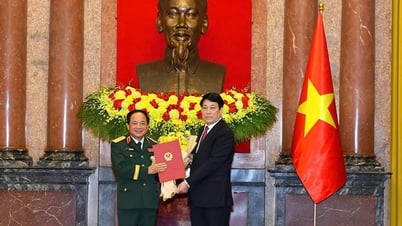




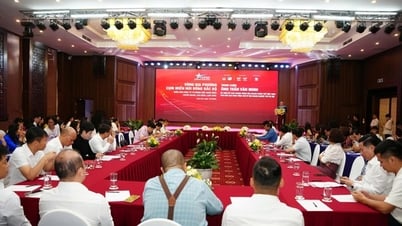





































![[Tin tức Hàng hải] Bộ Tài chính nhắm mục tiêu vào các mạng lưới đa dạng tạo điều kiện thuận lợi cho thương mại dầu mỏ của Iran](https://vphoto.vietnam.vn/thumb/402x226/vietnam/resource/IMAGE/2025/7/14/43150a0498234eeb8b127905d27f00b6)


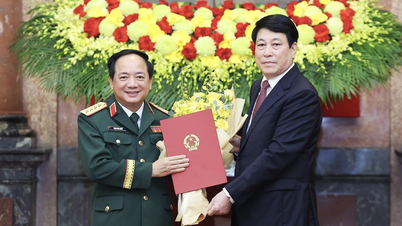






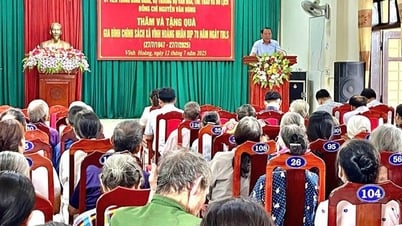




























Bình luận (0)